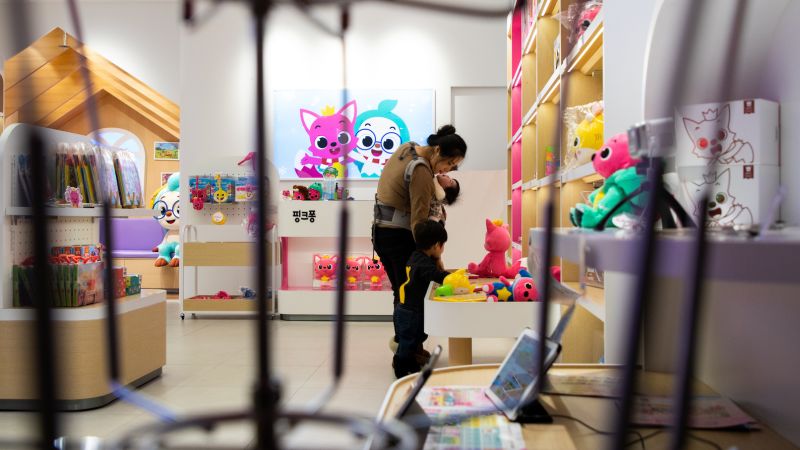General world news thread.
- Thread starter Plainview
- Start date
You are using an out of date browser. It may not display this or other websites correctly.
You should upgrade or use an alternative browser.
You should upgrade or use an alternative browser.

Charges dismissed for NewsNation reporter in East Palestine
The criminal charges filed against NewsNation reporter Evan Lambert have been dismissed, Ohio Attorney General Dave Yost announced Wednesday.

NewsNation reporter released from jail after arrest
Correspondent Evan Lambert was giving a live report during NewsNation’s “Rush Hour” when he was taken into custody.

Norfolk Southern eliminated key maintenance role in derailment region, union says
There are no federal requirements on the usage or maintenance of heat-detecting devices that have helped cut down on derailments.
 www.freightwaves.com
www.freightwaves.com
/cloudfront-us-east-2.images.arcpublishing.com/reuters/NWTCLE76XNJNVDMXWHP3PQOMQQ.jpg)
Panic as Turkey, Syria rocked again by 6.3M earthquake
A magnitude 6.3 earthquake struck southern Turkey near the Syrian border late on Monday, setting off panic and further damaging buildings two weeks after the country's worst earthquake in modern history left tens of thousands dead.

Japan promises to 'lead the world' in fighting Russian aggression with $5.5 billion in Ukraine aid | CNN
Japan pledged $5.5 billion in humanitarian aid to Ukraine on Monday, nearly quadrupling the amount of money Tokyo has promised to Kyiv since Russia invaded its neighbor nearly a year ago.

Japan readies ‘last hope’ measures to stop falling births
Experts say next 10 years critical as prime minister eyes ‘children first’ society
 www.ft.com
www.ft.com
Sorry Grimmy

 www.eonline.com
www.eonline.com

Marvel Actress Karen Gillan Reveals She's Been Secretly Married for Nearly a Year - E! Online
Marvel's Karen Gillan just announced that she’s married! Scroll on to learn how the Guardians of the Galaxy actress privately wed Nick Kocher in Scotland last May.
Sorry Grimmy

Marvel Actress Karen Gillan Reveals She's Been Secretly Married for Nearly a Year - E! Online
Marvel's Karen Gillan just announced that she’s married! Scroll on to learn how the Guardians of the Galaxy actress privately wed Nick Kocher in Scotland last May.www.eonline.com
Finland begins building $597m barbed wire fence on Russian border
The 200km fence will be over 3 metres tall with barbed wire, night-vision cameras, lights and loudspeakers.
Nearly 2 million barrels of Russian diesel are stranded at sea because no one wants to buy them
That's the largest at-sea buildup since October 2020, when global energy markets were still reeling from the COVID-19 pandemic.

UK says Falklands are British as Argentina seeks new talks
LONDON (AP) — Britain has reasserted its sovereignty over the Falkland Islands after Argentina pulled out of a cooperation agreement and demanded new talks over the South Atlantic territory that sparked a 1982 war between the two countries.

Japan Will ‘Disappear’ Without Action on Births, PM’s Aide Says
Japan will cease to exist if it can’t slow a fall in its birth rate that threatens to wreck the social safety net and economy, according to an adviser to Prime Minister Fumio Kishida.
Some excepts:
Japan will cease to exist if it can't slow a fall in its birth rate that threatens to wreck the social safety net and economy, according to an adviser to Prime Minister Fumio Kishida.
"If we go on like this, the country will disappear," Masako Mori said in an interview in Tokyo after Japan announced on Feb. 28 the number of babies born last year slumped to a record low. "It's the people who have to live through the process of disappearance who will face enormous harm. It's a terrible disease that will afflict those children," she added.
Last year, about twice as many people died as were born in Japan, with fewer than 800,000 births and about 1.58 million deaths. An alarmed Kishida has vowed to double spending on children and families in a bid to control the slide, which is progressing even faster than forecast.
The population has fallen to 124.6 million from a peak of just over 128 million reached in 2008, and the pace of decline is increasing. Meanwhile the proportion of people 65 or over rose to more than 29% last year. While South Korea has a lower fertility rate, Japan's population is shrinking faster.
Japanese Births Hit Record Low as Years-Long Decline Accelerates
"It's not falling gradually, it's heading straight down," said Mori, an upper house lawmaker and former minister who advises Kishida on the birthrate problem and LGBTQ issues. "A nosedive means children being born now will be thrown into a society that becomes distorted, shrinks and loses its ability to function."

South Korea breaks its own record for world's lowest fertility rate | CNN
South Korea's fertility rate, already the world's lowest, has dropped yet again in the latest setback to the country's efforts to boost its declining population.

Here is the FBI’s Contract to Buy Mass Internet Data
The FBI previously purchased access to "netflow" data, which a company called Team Cymru obtains from ISPs. Team Cymru then sells it to the government.

Cisco Systems pulled out of russia and destroyed $23.42m worth of equipment
Cisco Systems has left the Russian market, destroying tens of millions of dollars worth of equipment and components in the process. This is because the network equipment developer has no plans to resume operations in the country.

Migrant Workers Are Being Ripped Off By Employers On Farms
Farm workers are having hundreds of pounds unlawfully deducted from their payslips, an investigation by the Bureau of Investigative Journalism and VICE World News has found.
Let LGBTQ+ couples be, and set up a program that pays men for healthy sperm donations along with surrogate mothers willing to birth children and have them adopted by couples incapable of birthing children.
Japan Will ‘Disappear’ Without Action on Births, PM’s Aide Says
Japan will cease to exist if it can’t slow a fall in its birth rate that threatens to wreck the social safety net and economy, according to an adviser to Prime Minister Fumio Kishida.www.bloomberg.com
Some excepts:
Japan will cease to exist if it can't slow a fall in its birth rate that threatens to wreck the social safety net and economy, according to an adviser to Prime Minister Fumio Kishida.
"If we go on like this, the country will disappear," Masako Mori said in an interview in Tokyo after Japan announced on Feb. 28 the number of babies born last year slumped to a record low. "It's the people who have to live through the process of disappearance who will face enormous harm. It's a terrible disease that will afflict those children," she added.
Last year, about twice as many people died as were born in Japan, with fewer than 800,000 births and about 1.58 million deaths. An alarmed Kishida has vowed to double spending on children and families in a bid to control the slide, which is progressing even faster than forecast.
The population has fallen to 124.6 million from a peak of just over 128 million reached in 2008, and the pace of decline is increasing. Meanwhile the proportion of people 65 or over rose to more than 29% last year. While South Korea has a lower fertility rate, Japan's population is shrinking faster.
Japanese Births Hit Record Low as Years-Long Decline Accelerates
"It's not falling gradually, it's heading straight down," said Mori, an upper house lawmaker and former minister who advises Kishida on the birthrate problem and LGBTQ issues. "A nosedive means children being born now will be thrown into a society that becomes distorted, shrinks and loses its ability to function."
Intelligence leak exposes U.S. spying on adversaries and allies — The Washington Post
U.S. and European officials scrambled to understand how dozens of classified documents covering all manner of intelligence gathering had made their way online with little notice.

Myanmar airstrike on civilians sparks global outcry as witnesses describe attack
Death toll in Sagaing could reach 100 in what could be deadliest junta attack since coup in 2021
At least one dead, 5 injured in Manhattan parking structure collapse — Reuters
A four-story parking facility collapsed in New York City's lower Manhattan near Pace University and the New York Stock Exchange on Tuesday, killing at least one worker and injuring five others who were inside the structure, authorities said.
They messed that up too. Sent it early, and some carriers weren't included, lol.

Singapore executes man for trafficking two pounds of cannabis | CNN
A Singaporean man convicted of trying to traffic around 2.2 pounds of cannabis was executed on Wednesday, a sentence lambasted by rights groups and campaigners for its severity at a time when many other nations, including neighboring countries, have adopted a more lenient approach towards drugs...
Sorry @Kvally she ain’t got feet

 apple.news
apple.news
‘Too provocative’ mermaid statue causes stir in southern Italy — Guardian US
Art school headteacher hails ‘tribute to the great majority of women who are curvy’ amid social media uproar

No EU cash for 'anti-LGBT' zones in Poland, commission confirms
The EU has confirmed that 'funding will not be granted' for any parts of Poland that have implemented 'anti-LGBT' zones.
Six in 10 employees say they won't work for organizations that fail to speak out against racial injustice, the Edelman Trust Barometer finds in a new special report shared first with Axios.
- About the same number — 62% — say companies are "doing mediocre or worse" in living up to their promises to address racism at work and in their communities, the survey says.
Zoom in: Those saying that companies aren't doing enough to address racism rose 8 percentage points from last year, the Edelman survey said.
- About 65% of women respondents agreed, compared with 58% of men — both increases from last year.
- Among the employees who said their company or organization isn't making meaningful progress in addressing racism, unfunded (diversity, equity and inclusion (DEI) initiatives ranked as the No. 1 reason.
- 73% said employers must ensure diversity across functions and levels to address racism. Hispanic employees (81%) were the largest percentage to agree with this statement.
- The survey also found divisions between executives who believe companies are progressing on inclusion, and employees who are far less optimistic.
- "Companies should respond by realizing that when you do not have a representative workforce, your work suffers."
- Those companies that don't heed the call on diversity will "eventually become extinct and irrelevant," Ross said.
- The bill also outlaws the sale of ESG bonds, a popular way to fund renewable energy projects or lower debt costs for borrowers if they meet gender diversity or greenhouse gas emissions targets, per Reuters.
- It's part of a larger movement by Republicans to stop private companies and corporations from pursuing policies supporting racial justice, LGBTQ rights and the fight against climate change.
- Many no longer want to talk about their environmental, social and governance goals, experts in ESG and communications tell Axios.

'Great news': EU hails discovery of massive phosphate rock deposit in Norway
A massive underground deposit of high-grade phosphate rock recently discovered in Norway is big enough to satisfy world demand for fertilisers, solar panels and electric car batteries over the next 100 years, according to the company exploiting the resource.



